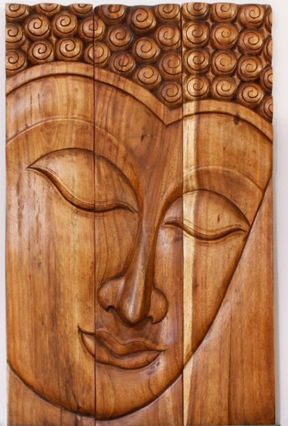
Home is where one starts from.
-- T.S Elliot
We all long to be home, to be safe and secure. Our lives however, feel anything but protected. We instead face the constant vulnerability of change and a sometimes quiet, but always persistent, thirst that is never quenched. Trying to keep the pangs of discontent at bay, all means of suffering are created. Walls of division and fragmentation in the form of a fictional self are erected - feebly trying to protect us from our ever-decaying satisfaction. In the end however, these very walls we build to fortress against our fears is what sustains our agony - ultimately keeping us from returning home.
What is our home? Awareness. Awareness is that ability to be fully present in the moment. How often are we truly aware of life right here, right now? Our minds in fact seem to conspire against paying attention to the moment. We are busy planning for the future, or rolling over the past. We fight to make the future what we want and struggle to be free of past decisions. We seem to have a never ending inner voice telling us the way things should be. We don't seem interested at all in the way things actually are.
So how can awareness act as a home and refuge from the constant nagging of our desperate energies and the minds seemingly endless chatter to find so-called solutions? Awareness helps us realize there is no problem. There never was. No matter how difficult life is in any given moment, paying attention to the moment without a self-centered narrative shows life is fine. It may not be how WE want it to be, but life is nonetheless fine. Awareness helps us realize a life-centered view as opposed to a self-centered view. The secret to ending suffering is simply being aware.
When we do zazen on a regular basis, awareness can act as an anchor, holding us steady as the waves of life crash about us. Awareness is a cultivated ability to stop, notice, and find clarity in a broader perspective of life. Moving from ‘self' at the center, which will always bring suffering, to ‘life' at the center, we will begin to let go and allow the natural fluctuations of life's movements to occur without as much resistance as before. This loosening of our grip on our ego's frantic, misplaced efforts for security will allow us to open to our Original Self. The more we are able to move into our Original Nature, the more pure and clear things become. Instead of our self-centered ego scrambling for security, hopelessly battling against the forces of life, a more relaxed observation begins to take hold. Our senses become in tune with life, no longer fraught with subject and object, but simply observation. The ego constantly evaluates life to help us figure out our next "move" - always trying to stay one step ahead of life. When we begin to lose evaluations for observations, a new perspective of life opens.
With this new life-centered perspective, life is fully lived. Life becomes the central point, not our supposed dramatic struggles. Each of us builds a running storyline around our lives, building our personal dramas. For Zen practice to take hold, we must drop our fictional dramas, which is very hard thing to do. Within all dramas, we like to assign blame, create victimizations, and as with all stories, the main character must be involved in a conflict. Opening to life in this way seems counter intuitive, creating an unnecessary vulnerability. We seem to lose our sense of importance. To go home again, we have to give up the hope of self-directing life to what we want or think it should be. To go home, we must listen to the teaching of our ordinary, daily life. What better place than here, what better time than now?
